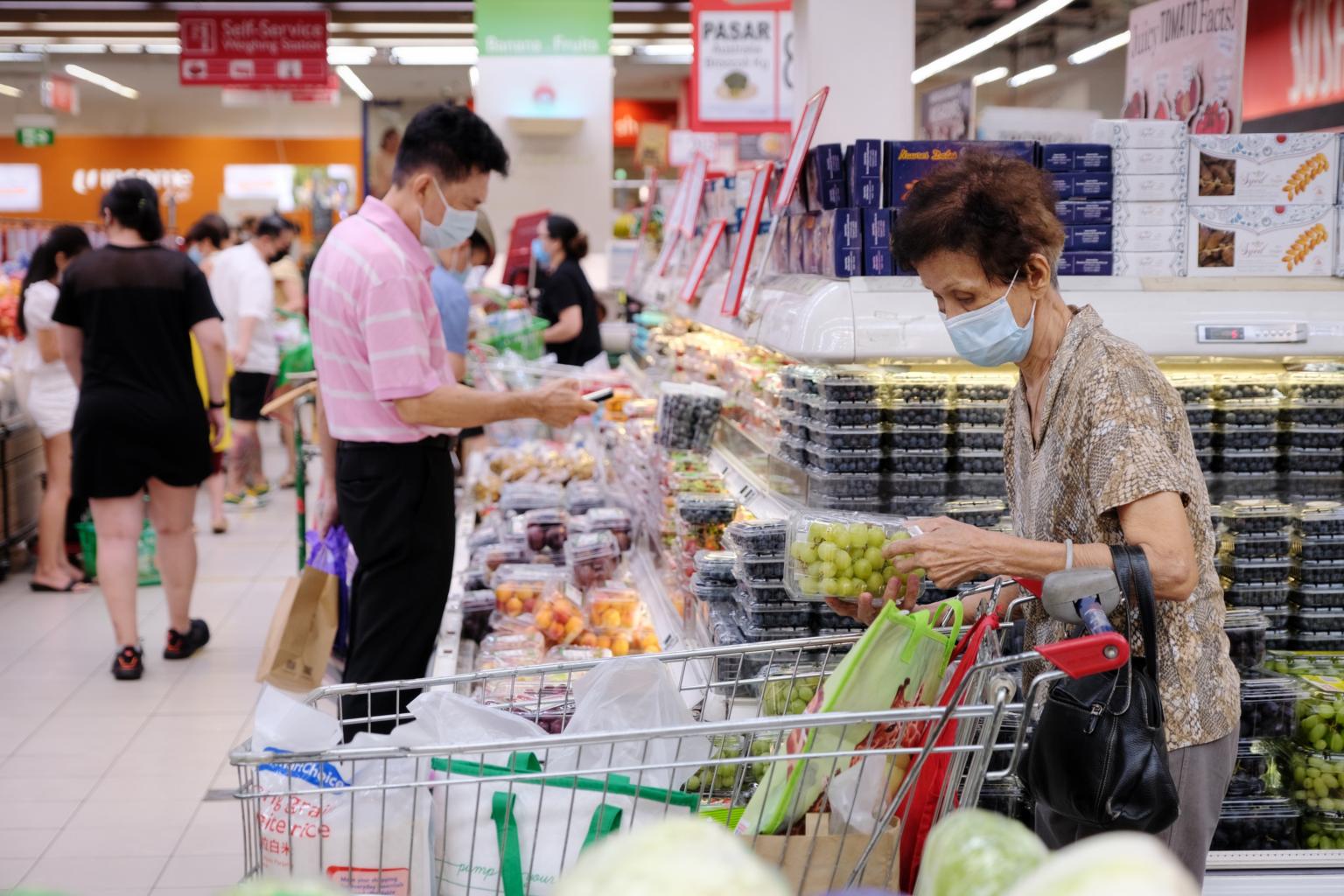Some Singapore households see improvement in food security status despite pandemic
Sign up now: Get ST's newsletters delivered to your inbox

Food insecurity is defined as when a household does not have or is not confident of having access to enough food to be healthy.
PHOTO: ST FILE
SINGAPORE - A study this year has found that more than 40 per cent of households in Singapore that were previously struggling to put food on the table pre-pandemic are in a better situation now.
Researchers from the Singapore Management University's Lien Centre for Social Innovation studied the impact that the pandemic has had on households that were previously facing food insecurity.
Food insecurity is defined as when a household does not have or is not confident of having access to enough food to be healthy.
The first run of The Hunger Report, published in 2020, found that 10.4 per cent of about 1,200 surveyed households experienced food insecurity at least once in a year, with two out of five facing the issue at least once a month.
Follow-up surveys with 59 of these households in this year's report found that 44.1 per cent saw some form of improvement in their food status, moving up by at least one category, such as from "severely food insecure" to "moderately food insecure".
Twelve of the 59 households, or 20.3 per cent, that were previously food insecure no longer face the issue entirely.
The study suggested that some of the reasons behind the improvement was the increase in the number of Singaporeans seeking aid during the pandemic, as well as the increase in on-the-ground food support.
Despite improvement in certain households, 45.8 per cent of the respondents reported no change in food insecurity status, while the situation of 10.2 per cent was found to have worsened.
The study was commissioned by The Food Bank Singapore and supported by business-building enterprise Tolaram.
The report also found that giving households choices in the way they receive support improved their psychological well-being - 75.8 per cent reported being satisfied with the food support provided after being given the choice to choose between supermarket vouchers or having cooked food.
This is an improvement from the almost 89 per cent in 2020 who had previously reported being unsatisfied with the food support they received.
Ms Nichol Ng, co-founder of The Food Bank Singapore, said that the report findings have proven that people seek comfort in choosing what they eat amid "a time of chaos and crisis".
She said: "Through these times, they still wish to be accorded the respect to be able to make their own choices."
In a panel discussion at the launch of the report on Friday (March 25), Parliamentary Secretary for Social and Family Development Eric Chua said that food insecurity stems from deeper-rooted issues.
He said that two groups that are vulnerable to the issue are those living in rental flats and rough sleepers.
"Rental households are one big part of the equation to look at and address head-on. We try to reach out to rental-flat families to try and help them break the cycle of poverty... and to focus on the next generation like the children and youth so that hopefully they can break out of this cycle.
"Food insecurity presents itself as one of the symptoms of some of the other challenges that these families face."


